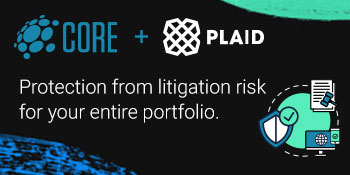Murchinson, A Stockholder Of The Class A Common Stock Of TaskUs,Issues An Open Letter To Fellow Stockholders; Expresses Concern That The Transaction Price Of $16.50 Per Share Undervalues TaskUs; Contends The Deal Appears To Be The Result Of A Flawed Process That Benefits The Company's Controlling Stockholders At The Expense Of Minority Stockholders
Author: Benzinga Newsdesk | August 12, 2025 04:44pm
Murchinson Ltd. (collectively with the funds it advises and/or sub-advises, "Murchinson" or "we"), a stockholder of the Class A common stock of TaskUs, Inc. (NASDAQ:TASK) ("TaskUs" or the "Company"), today issued an open letter to fellow stockholders regarding its opposition to the Company's proposed "going-private" transaction (the "Transaction") with an affiliate of Blackstone Inc., the Company's controlling stockholder, TaskUs Co-Founder and CEO Bryce Maddock and TaskUs Co-Founder and President Jaspar Weir (collectively, the "Buyer Group").
***
August 12, 2025
Dear Fellow Stockholders,
We are writing to you today to express our concern over the Buyer Group's proposed take-private transaction announced by TaskUs on May 9, 2025. Following our own analysis and review of the Company's proxy statement, filed with the SEC on August 8, 2025 (the "Proxy Statement"), we believe there are two key troubling aspects of the Transaction that stockholders should be aware of before voting on the Transaction at the special meeting of stockholders to be held on September 10, 2025 (the "Special Meeting"):
- The Transaction price of $16.50 per share drastically undervalues TaskUs, its future earnings power and growth trajectory.
- The Transaction appears to be the result of a flawed process, including a fairness opinion influenced by conflicts of interest.
In our view, the Transaction rewards the controlling stockholders at the direct expense of the Company's minority stockholders.
We therefore intend to vote AGAINST this Transaction. It is our position that stockholders deserve fair value for the Company's shares, which we believe should be at least $19.00 per share.
The Transaction Drastically Undervalues TaskUs, Its Future Earnings Power and
Growth Trajectory
TaskUs is a high-growth, cash-generating business and has built a differentiated, premium position as the go-to partner for many of the world's most innovative companies, including Meta, DoorDash, Uber, Coinbase and Netflix. We believe the Company is uniquely positioned at the intersection of several market tailwinds: (1) the proliferation of user-generated content online, which drives demand for moderation and safety, (2) AI development and deployment, (3) digital customer experience outsourcing, and (4) increased regulatory pressure for higher levels of online safety, privacy and moderation.
These tailwinds are structural drivers that we believe should support sustained high single-digit to double-digit revenue growth for the foreseeable future. The Company's recent performance clearly reflects this:
- The Company's earnings results for the first and second quarters indicate its business is inflecting. In the second quarter, the Company's revenue growth accelerated to 23.6% year-over-year, with every geography delivering double-digit growth.
- In the second quarter, the AI Operations segment achieved year-over-year revenue growth of 72.2% and sequential growth of 15.4%, demonstrating substantial momentum and no indication of a slowdown.
- Additionally, SG&A expense margin decreased by approximately 40 basis points year-over-year, while Adjusted EBITDA margin improved by approximately 70 basis points year-over-year.
This year alone, the Company is projected to generate between $75 million to $120 million of free cash flow. According to the Proxy Statement, TaskUs will also utilize $100 million to $200 million of its own cash to partially fund the Transaction, meaning that the Buyer Group will recoup most of its "equity check" using free cash flow and be made whole in under a year, while the rest of the Company's stockholders give up their shares at what we believe to be a depressed valuation. In other words, the sum of the cash on hand as of June 30, 2025 and the FY2025 Adjusted Free Cash Flow guidance provided by the Company on February 26, 2025 is likely to exceed the cost of acquiring the outstanding shares not currently owned by the Buyer Group at the proposed acquisition price of $16.50 per share.
Interestingly, the Company's Proxy Statement attempts to justify the Transaction by painting a gloomy picture of TaskUs' future in the age of AI. The Buyer Group claimed that adapting to rapid advancements in AI, "was [not] possible to successfully pursue … as a public company." However, this justification does not hold up. With the Buyer Group effectively controlling the Company, TaskUs' Board of Directors (the "Board") has leeway to weather uncertainty and carry out the implementation of the AI strategy as a public company.
Further, the notion that the pivot to AI cannot be executed as a public company is undermined by the Proxy Statement itself. In forming the fairness opinion, an important factor was "advancements in AI and increased adoption of AI by the Company's competitors." This not only affirms that the pivot to AI is indeed possible for public companies in TaskUs' industry but also indicates that TaskUs would not fare any worse than its competitors who are already pursuing the same strategy.
In closing, TaskUs is not a distressed business and should therefore not be selling itself at a discount to its base case valuation. The Company is on track to significantly exceed its FY2025 Adjusted EBITDA guidance.1 As such, selling a company with TaskUs' operational performance, cash flow and growth trajectory for less than 7.0x EV/2025E EBITDA, which is well below the Company's three-year trading average of ~8.0x, is unacceptable. By contrast, assuming an 8.0x base case multiple on FY2025E Adjusted EBITDA, the takeout price should be a minimum of ~$19.00 per share, reflecting the Company's true fair value before any control premium is even added to the purchase price.
Posted In: TASK




